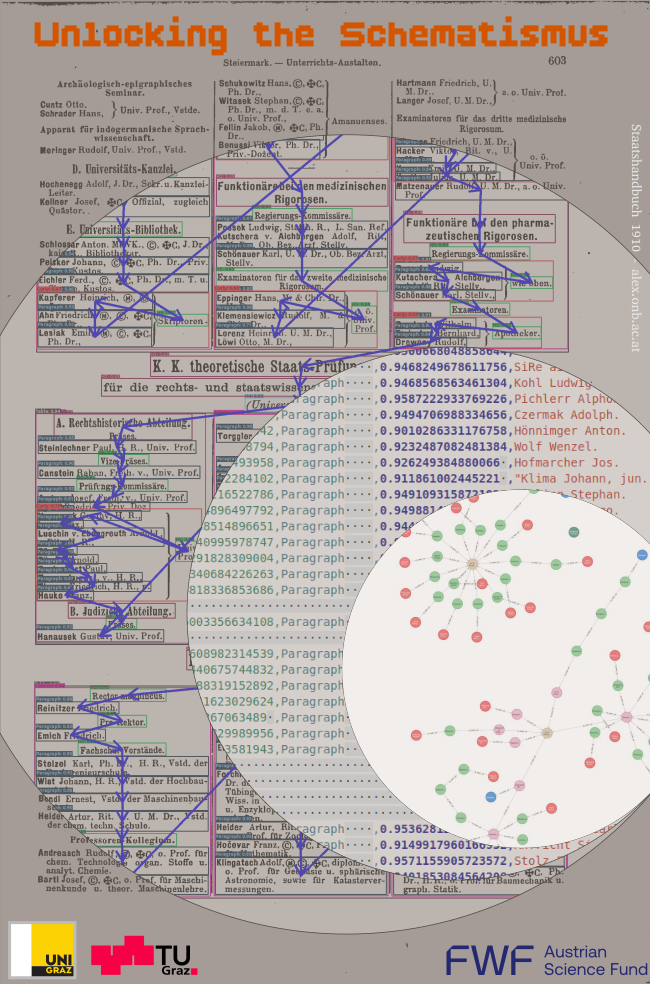Unlocking the Schematismus – A Machine Learning and Data-driven Approach Toward Mapping Habsburg Middle Class in the Long 19th Century
The FWF-funded research group FG 3100 "Unlocking the Schematismus," coordinated by Prof. Wolfgang Göderle (University of Graz), unlocks a historically underutilized source: the Schematismus of the Habsburg Monarchy. Together with Graz University of Technology and the University of Vienna, the interdisciplinary team develops innovative digital methods to systematically analyze these comprehensive personnel directories from the 19th century.
The Schematismus provides detailed documentation of civil servants, military officers, and functionaries of the Monarchy, offering unique prosopographical material on the social structure of the long 19th century. The project combines historical research with cutting-edge technologies in machine learning, data modeling, and network analysis.
Five coordinated subprojects bring together historians and computer scientists: The coordination project (Wolfgang Göderle) manages overall activities, while data extraction (Roman Kern, TU Graz) employs machine learning to develop automated source processing methods. The data modeling and visualization subproject (Marcella Tambuscio) transforms complex historical data into modern graph databases. Two historical analysis projects examine both the actor level (Wolfgang Göderle) and institutional structures (Julia Bavouzet, University of Vienna).
The project establishes new standards in the digital transformation of historical primary sources and develops innovative tools for prosopographical datasets. Results will be made available to the scholarly community through open-access publications, international conferences, and the University of Graz's GAMS repository, making a substantial contribution to Digital Humanities research in the German-speaking world.
The highly competent expert team combines expertise in Austrian history, network science, data science, and digital humanities, breaking new ground in transdisciplinary collaboration and setting benchmarks for future historical research projects.

| Duration | 01.07.2025-30.06.2030 |
| Funding Funding program | FWF Research Groups |
| Grant amount | € 898.478 |
| Unit | Department of History |
| Profile area Uni Graz | |
| Core research area of the Faculty | |
| Principal investigator | Mag. Dr.phil. Wolfgang Göderle |
| Project staff | Richard Hadden, PhD Marcella Tambuscio, PhD |
| Project homepage |